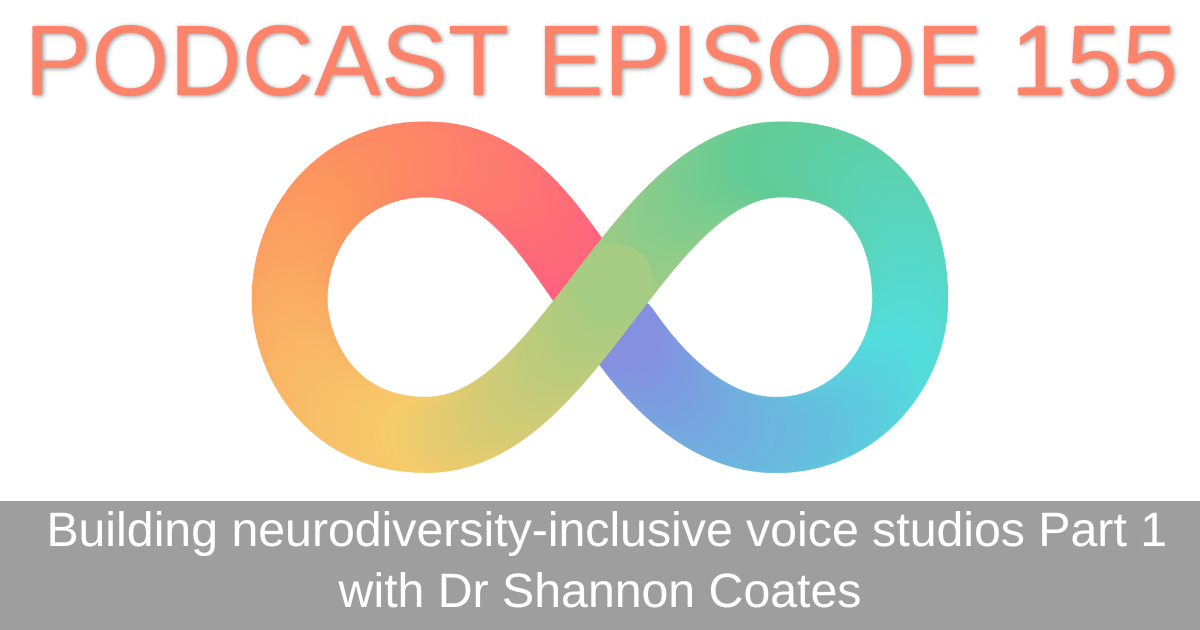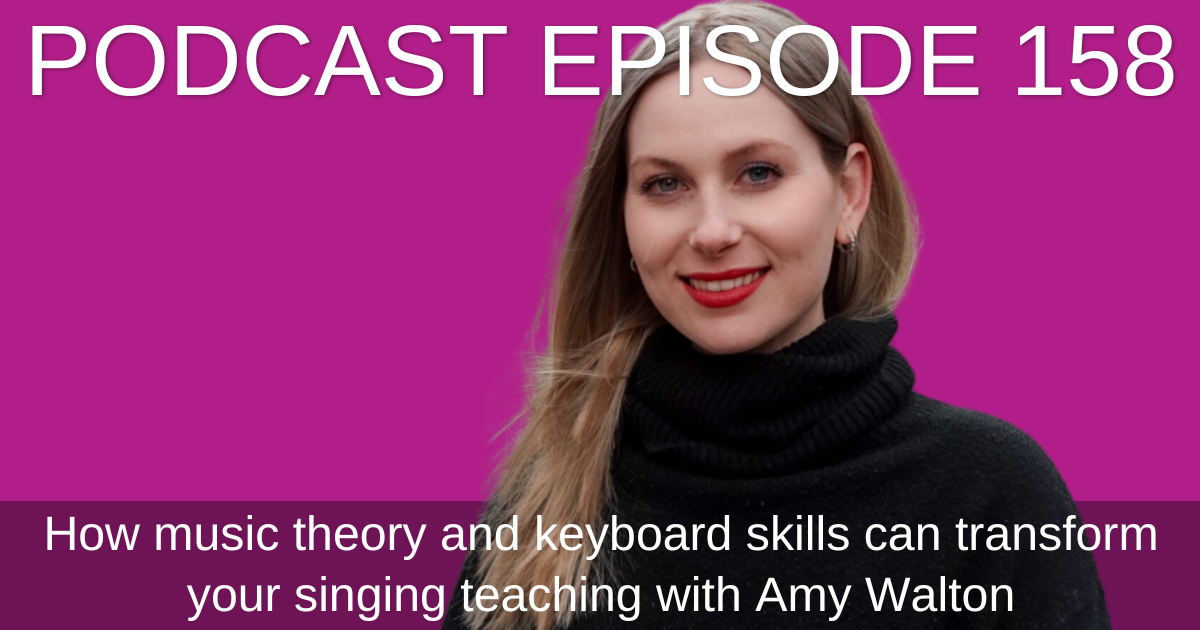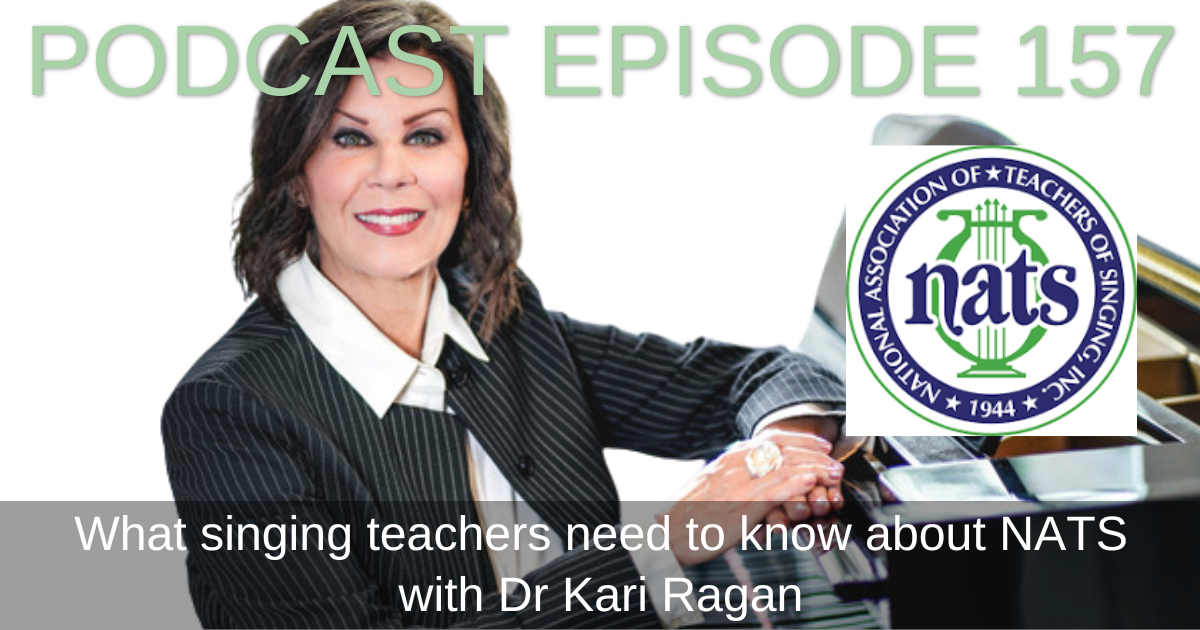Dr Shannon Coates will be keeping us company over the next two weeks to help us understand how we can build neurodiversity-inclusive voice studios. Shannon is a singer, voice teacher, and educator who began developing training and educational resources specifically for independent voice teachers. She works with smaller groups of teachers in an eight-month training called the VoicePed UnDegree that runs each year. This week, Shannon helps us to understand the terminology of neurodiversity, and we start to explore how we can be inclusive for the likes of dyslexia and ADHD.
KEY TAKEAWAYS
- Neurodivergent refers to individuals whose neurological development and functioning differ from what is typically considered typical or neurotypical. This includes conditions such as autism, ADHD, dyslexia, and others. Neurodivergent individuals may have unique ways of thinking, processing information, and interacting with the world. The term emphasises the natural diversity of human brains and challenges the notion of a single “normal” or “correct” neurological makeup.
- ADHD stands for Attention Deficit Hyperactivity Disorder. It is a neurodevelopmental disorder characterised by difficulties with attention, hyperactivity, and impulsivity. Individuals with ADHD may struggle with maintaining focus, organising tasks, and controlling impulses. ADHD can impact various aspects of daily life, including academic performance, work, and relationships.
- Dyslexia is a specific learning disorder characterised by difficulty in reading, spelling, and writing despite ‘normal’ intelligence and adequate educational opportunities. Individuals with dyslexia may have challenges with phonological processing, which affects their ability to recognize and decode words and symbols accurately.
BEST MOMENTS
‘Not being associated with academia doesn’t mean that you can’t be a specialist voice teacher’
‘In the process of working with my own children I also began to see some of those similar things in the studio’
‘Practising the new thing is always in my brain, I want to get into it and the novelty of it, ADHD singers will love it’
‘No matter who we’re working with, the most effective reframing is asking what they focused in on and found interesting’
EPISODE RESOURCES
Guest Website:
Social Media:
- Instagram: @voiceped
- Facebook: @VoiceAndTheArtofTeaching
Relevant Links & Mentions:
- (Column) Neurodiversity in the Voice Studio, Clinic, and Performance Space: Using a Neurodiversity Affirming Lens to Build More Inclusive Spaces for Singers: Part 1, Current Understanding of Neurodiversity by Dr Shannon Coates; Journal of Singing (2022)
- (Podcast) Singing Teachers Talk: Ep.152 ‘Tomayto, Tomahto’: Understanding Singing Terminology with Line Hilton
- (Podcast) Singing Teachers Talk: Ep.104 Teaching Singers with ADHD with Colin McGee
- Tera Sumpter: terasumpter.com
ABOUT THE GUEST
Shannon is a singer, voice teacher, and educator with nearly two decades of experience running a successful independent voice studio. She develops training and resources for voice teachers worldwide, focusing on inclusivity and neurodiversity. Shannon holds three vocal performance degrees from the University of Toronto and offers subject-specific training, including Neurodiversity-Affirming VoicePed and Contemporary Voice. She promotes best practices in teaching and advocates for inclusive voice spaces through social media.






